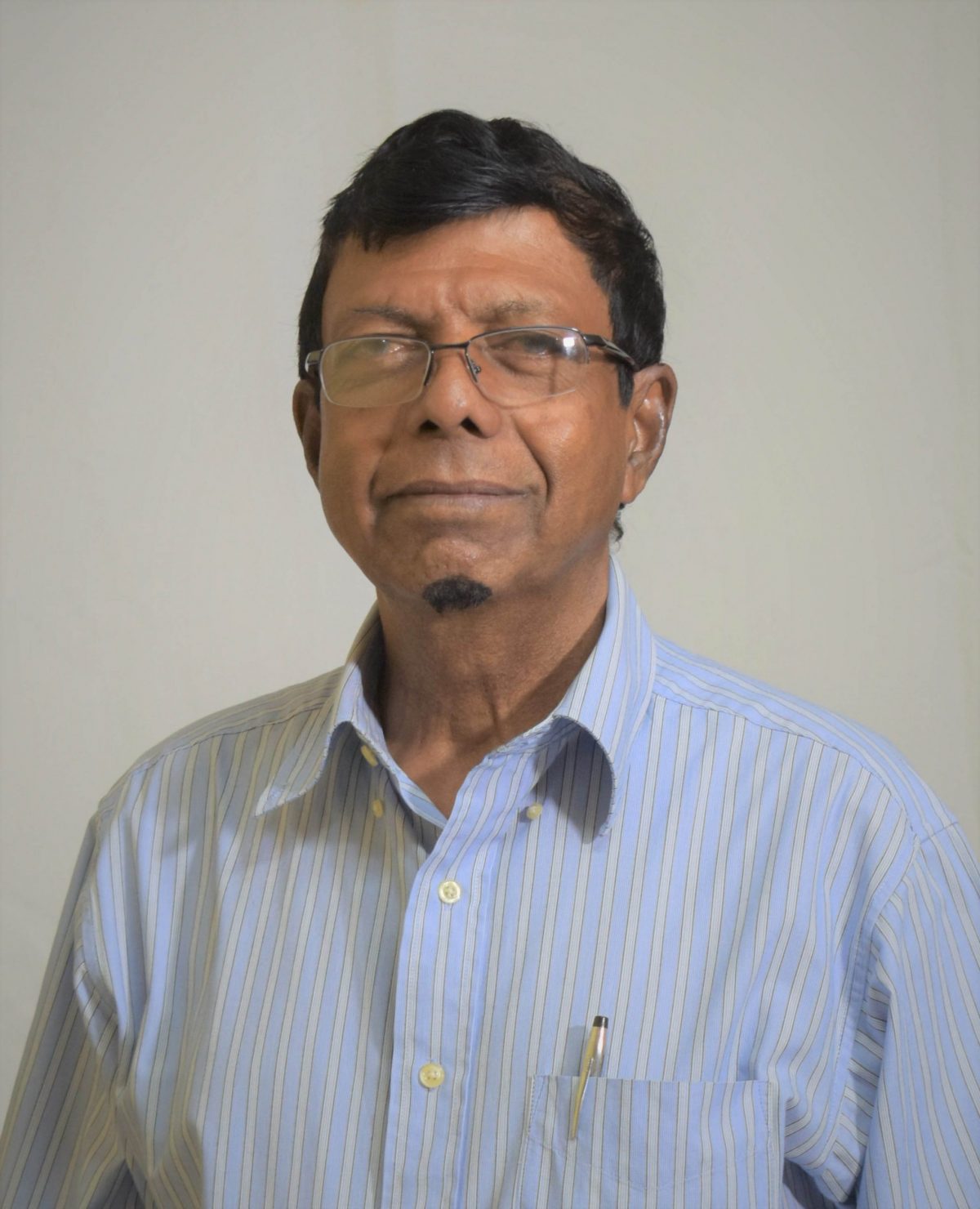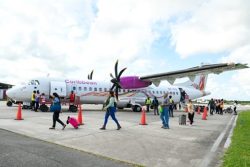Savings from the reduction of staff by 300 over the past 18 months and prudent management of the utility company’s finances have seen the Guyana Water Inc (GWI) achieving financial sustainability, its Chief Executive Officer Shaik Baksh yesterday announced.
During a press conference at GWI’s headquarters, Baksh pointed out that while the downsizing of staff contributed to the saving of some $240 million, it is not the only factor that contributed to the financial position of the company.
He stated that government’s intervention to clear their $8 billion debt to Guyana Power and Light along with the installation of energy-efficient appliances, new connections, and the cutback on transportation, among other measures, have contributed to the positive financial standing.
“Financial sustainability has been achieved and we are in a stable financial position at GWI and by that, I mean we have eliminated any need for overdraft facilities at the bank… Secondly, we have a fairly good cash flow to meet our commitments…” Baksh told reporters at the press conference.
He pointed out that the employment cost at the company was skyrocketing, forcing them to restructure and reduce their staffing.
He stated that the company moved from employing over 1,300 persons to 998 persons to date. Baksh was quick to point out however, that they did not terminate the services of all those employees as some resigned and retired.
In a statement from the company clarifying the downsizing, GWI said their retrenchment process did not affect 300 employees.
“Our termination exercise only targeted 77 personnel, many of which were redundant positions. The remaining 223 departed the company’s employ as a result of resignations and retirement,” Public Relations Officer Leana Bradshaw said in a statement.
Additionally, Baksh also credited the performance of the company to its new Finance Director, Mark David, and his prudent financial management skills.
“So, we have achieved a lot of cost cutting without affecting the operations of the utility. And this also in large measure electricity cost was also reduced. Tremendously and we have an energy efficiency unit at work, to help to ensure we have more savings…It is prudent financial management in all the areas that allowed them to reduce expenditures on a monthly basis going forward… ” he stated.
Nonetheless, Baksh stated that the cutbacks do not prevent them from engaging in initiatives to build and support employees’ morale and welfare.
He said that even though staff have been cut, performance has not been affected.
“Our productivity ratio has gone up…” he said before pointing out that over the past year they have been recruiting skilled workers such as engineers to manage day-to-day operations. The CEO added that with the expansion of the network and mega projects coming on stream soon they will have to recruit more skilled personnel.
Moreover, Baksh added that they have also been able to improve and significantly reduce their debts to suppliers. Their debt margin which stood at $800 million prior to September 2020 has now moved to $50 million.
“That’s what you call financial stability and sustainability… our inventory has improved with more spares, pumps, motors as well as drilling materials which we have on hand,” the CEO added.
Touching on new connections, the CEO explained that they have managed to connect over 7,400 new customers to their supply network.
He stated that when he assumed office in September 2020 there were approximately 7,684 applications waiting to be approved. The number has been reduced dramatically with just about 200 applications outstanding and Baksh gave all assurances that those customers will be connected to the network soon.
Rates recovery
But while the company’s finances has been showing positive performance, Baksh said they are still challenged with rate recovery. He explained that from both residential and commercial lines, there is an outstanding sum of over $3 billion.
He let it be known that there is a robust and aggressive plan to recover outstanding revenue from both residential and commercial entities. The CEO posited that unless they collect the revenues they will not be able to efficiently manage and improve the services of GWI.
“In some communities there is an unwillingness to pay for water service and that is a big challenge for GWI so we are urging customers to come forward and pay their bills…” said Baksh before explaining that the company has an extensive programme targeting delinquent customers.
He stated that they have been involved in house-to-house calls, community meetings and outreaches and others to bring in revenue needed.
The CEO added that there is a priority to recover outstanding sums from commercial entities.
“There is a priority for collections. On both, but the more on the commercial customers… to pay. So we have an aggressive programme in place here to bring in our revenues so unless you can collect revenues, we will not be able to offer services to our employees…”
Currently GWI is offering customers who owe large sums, a payment plan, and in instances where customers are disconnected, they are waiving the disconnection fee.
Moreover, Baksh disclosed that they have been able to complete the financial audits 2017 and 2018 and are working to complete the remaining years up to 2021 by the end of this year.






